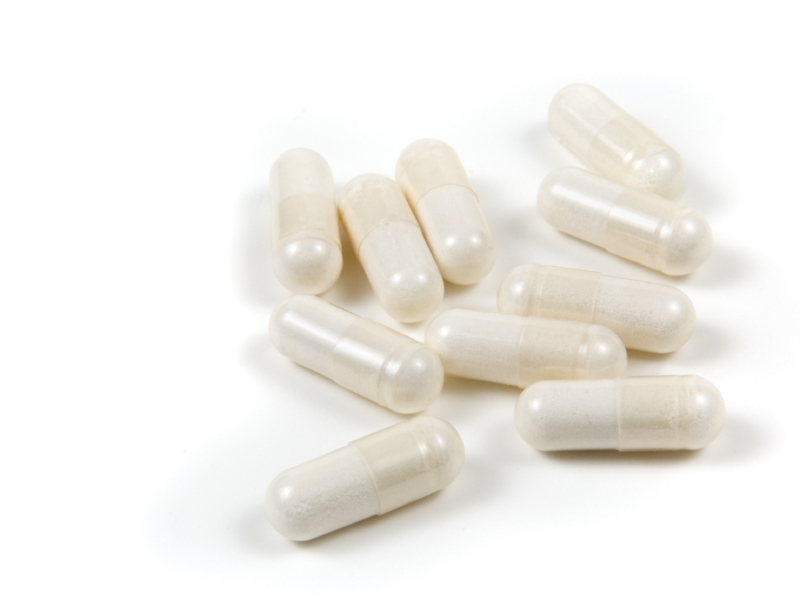Preventing Illness in the Offspring of a Parent with Bipolar Disorder
A 2018 article by researcher Robert Freedman and colleagues in the American Journal of Psychiatry reported that prenatal nutritional supplements can reduce mental illness in at-risk offspring. The article made a good case for supplementation with folate, phosphatidylcholine, and vitamins A and D.
Here we describe some additional ways to minimize risk of mental illness in children who are at risk for bipolar disorder or other mental illnesses.
Some efforts at prevention can begin even before a child is conceived. Avoiding smoking or drinking alcohol and maintaining a nutritious diet to prevent inflammation and excessive weight gain before conception could reduce adverse epigenetic effects on the offspring. Epigenetics refers to environmental influences on gene transcription. The impact of life experiences such as a mother or father’s substance use is not registered in their child’s DNA sequence, but can influence the structure of the child’s DNA or its packaging.
Maternal good health and wellbeing during pregnancy has also been shown to improve neonatal health and functioning.
Once a child is born, they can be encouraged in healthy habits, including a nutritious diet, good sleeping habits, regular vigorous exercise, and mindfulness/meditation training (which pediatric psychiatrist James Hudziak has suggested should be universal).
For a child who is beginning to develop mood or behavioral symptoms, more intensive intervention may be prudent. Research supports the effectiveness of family interventions such as family-focused therapy (FFT) for youth with depression, cyclothymia, or bipolar disorder not otherwise specified (BP-NOS) and a family history of bipolar disorder. Researcher David J. Miklowitz described the effects of this intervention in a 2013 article in the Journal of the American Academy of Child and Adolescent Psychiatry.
Depression in children 3 to 6 years of age is as common as depression in older children (with rates around 1–2%), and robust improvements have been observed when families engage in parent child interaction therapy (PCIT) with a focus on emotional development. In PCIT, parents are coached while interacting with their children and encouraged to establish warm interactions while setting appropriate limits. In a study by Joan L. Luby and colleagues published in the American Journal of Psychiatry in 2018, using PCIT modified to include an emotional development component improved depression and associated symptoms in children aged 3 to 11, and it also improved mothers’ mood and behavior. Read more
Prenatal Prevention of Psychiatric Illness with Nutritional Supplements
 In a 2018 article in the American Journal of Psychiatry, researcher Robert Freedman and colleagues shared the results of a systematic review of data on nutritional supplements during pregnancy for the primary prevention of psychiatric illness in the child. Freedman and colleagues concluded that the evidence is robust that prenatal folic acid supplementation plus multivitamins not only can prevent birth defects such as cleft palate, spina bifida, and microcephaly, but also social withdrawal, decreased attention, and aggression at age 18 months. They wrote, “Supplements of up to 4 mg [of folic acid] before 12 weeks gestation have been found to be safe and effective.”
In a 2018 article in the American Journal of Psychiatry, researcher Robert Freedman and colleagues shared the results of a systematic review of data on nutritional supplements during pregnancy for the primary prevention of psychiatric illness in the child. Freedman and colleagues concluded that the evidence is robust that prenatal folic acid supplementation plus multivitamins not only can prevent birth defects such as cleft palate, spina bifida, and microcephaly, but also social withdrawal, decreased attention, and aggression at age 18 months. They wrote, “Supplements of up to 4 mg [of folic acid] before 12 weeks gestation have been found to be safe and effective.”
The effects of omega-3 fatty acid supplementation depended on when the supplements were taken. Taking omega-3 fatty acid supplements early in pregnancy was linked to an increase in schizophrenia and more symptoms of attention deficit hyperactivity disorder (ADHD) in the offspring. However, supplementation after 20 weeks of pregnancy decreased preterm delivery, low birth weight, and asthma.
As of 2017, choline supplementation during pregnancy is recommended by the American Medical Association. Their recommendation is based on research in which the choline precursor phosphatidylcholine (5,000-6,300 mg/day) was given to mothers beginning in the 18th week of pregnancy and continued in the newborn for two weeks to three months after birth in the form of 100mg of liquid phosphatidylcholine. This supplementation regimen normalized the P50 auditory evoked potential, a measure of inhibitory sensory gating that is abnormal in patients with schizophrenia and bipolar disorder and infants whose parents had psychosis, depression, or smoked (all risk factors for a later diagnosis of schizophrenia).
Healthy individuals show a reduced response to an auditory cue when it is repeated 50 milliseconds after the initial cue. In people with schizophrenia, response to the repeated cue is not suppressed. Not only did the P50 auditory evoked potential normalize with phosphatidylcholine supplementation, but at 3.5 years of age, those who received phosphatidylcholine supplements in utero and as newborns had fewer problems with attention and social interactions. The findings were even more robust in those with the CHRNA7 genotype (a genetic variation in the alpha 7 nicotinic receptor), which is a risk factor for schizophrenia.
Supplementation with vitamins A and D during gestation also decreased the risk for schizophrenia and autism spectrum disorders in offspring. Recommendations include Vitamin D at doses of 600 to 4,000 IU for pregnant mothers and 400 to 1,000 IU for infants. Because of potential toxicity, vitamin A should be limited to 8,000 units from diet and supplements combined. (Supplements typically contain 2,500 units.)
While there are some methodological limitations to the findings, Freedman and colleagues conclude, “As part of comprehensive maternal and fetal care, prenatal nutrient interventions should be further considered as uniquely effective first steps in decreasing risk for future psychiatric and other illnesses in newborn children.”
Editor’s Note: Given the high risk of psychiatric illness (74%) in the offspring of a parent with bipolar disorder and the finding of abnormal P50 auditory evoked potential in patients with bipolar disorder, the recommended nutritional supplements should be given special consideration during gestation of a child who has a parent with bipolar disorder. According to the 2018 article by Freedman and colleagues, this would include folate, phosphatidylcholine, vitamin A and vitamin D.
Eating Beef Jerky and Other Nitrate-Cured Meats Linked to Increased Mania Risk
 In a 2018 article in the journal Molecular Psychiatry, researcher Seva G. Khambadkone and colleagues reported that a history of eating nitrated dry cured meat, such as beef jerky, was associated with a more than threefold increase in the risk of current mania. Eating other types of meat and fish products was not linked to mania.
In a 2018 article in the journal Molecular Psychiatry, researcher Seva G. Khambadkone and colleagues reported that a history of eating nitrated dry cured meat, such as beef jerky, was associated with a more than threefold increase in the risk of current mania. Eating other types of meat and fish products was not linked to mania.
The study included 217 people with mania, 91 with bipolar depression, 79 with unipolar depression, and 371 with schizophrenia, plus 343 control participants without a psychiatric disorder. Each participant responded to a questionnaire assessing whether they had ever eaten certain foods. The researchers had the idea that eating foods such as undercooked meat or fish, which might carry infectious agents, could be connected with mania, since inflammation seems to be linked to psychiatric illness. To the researchers’ surprise, their analysis found an independent link between eating nitrated dry cured meat (such as beef jerky, turkey jerky, or meat sticks) and being admitted to a hospital with acute mania.
Having eaten other cured meats such as salami or prosciutto was not linked to mania, nor was having eaten any other food.
Following these findings, Khambadkone and colleagues designed a study in which rats were given meat with added nitrate. The rats showed hyperactivity that resembled human mania, alterations in brain pathways that have been linked to bipolar disorder, and changes to gut microbes.
Antioxidant Supplement Coenzyme Q10 Looks Promising for Bipolar Depression
Coenzyme Q10 (CoQ10) is an antioxidant that occurs naturally in the human body, but its levels decline with age, medical illness, and depression. In a randomized, controlled trial that was published in the Journal of Clinical Psychopharmacology in 2018, researcher Maryam Mehrpooya and colleagues found that adding coenzyme Q10 supplements to a treatment regimen improved bipolar depression compared to adding placebo.
The pathophysiology of bipolar disorder involves mitochondrial dysfunction, oxidative stress, and inflammation, and coenzyme Q10 can affect all of these pathways. It is also neuroprotective, and may help prevent the degeneration of neurons in people with Alzheimer’s, Parkinson’s, or Huntington’s diseases.
The study included a final total of 69 participants who were randomly assigned to receive either 200 mg/day of coenzyme Q10 supplements or placebo in addition to their normal treatment regimen, which had been stable for at least two months at the time of the study. Participants’ bipolar depression was rated at the beginning of the study, after four weeks, and after eight weeks. At the eight-week mark, coenzyme Q10 showed a statistically significant benefit over placebo with a large effect size. Three participants who received coenzyme Q10 experienced full remission of their depression, and 72% of those in the coenzyme Q10 group improved compared to only 12% of those who received placebo.
The study had some limitations. It was small, and twenty participants dropped out of the study before its completion, which may have inflated the findings.
Previous research found that coenzyme Q10 had benefits in specific populations. In two non-blind studies (studies in which participants know that they are receiving the treatment in question rather than possibly a placebo), 29 older patients with bipolar disorder improved when taking 800 mg to 1200 mg/day of coenzyme Q10. A randomized, controlled trial of coenzyme Q10 in people with multiple sclerosis and depression found that 500 mg/day reduced fatigue symptoms and depression. Coenzyme Q10 has also improved well-being and energy in small, controlled trials in people with breast cancer, Gulf War veterans, and elderly populations.
Taking coenzyme Q10 is low-risk. It had no adverse effects in the study by Mehrpooya and colleagues. Gastrointestinal reactions are possible, but can be managed by taking coenzyme Q10 with food and spreading out dosing throughout the day. Insomnia is also possible, but is less likely when coenzyme Q10 is taken early in the day. One effect to note is that coenzyme Q10 can interact badly with the blood-thinner warfarin.
Editor’s Note: The study by Mehrpooya and colleagues is interesting. Another antioxidant, N-acetylcysteine (NAC), also took 2 months to work in trichotillomania and bipolar depression, so patients should be warned not to expect a quick response with either coenzyme Q10 or NAC. Other potentially useful supplements include: Vitamin D3 (1500–5000 IU/day), folate or L-methylfolate, and acetyl-L-carnitine. Acetyl-L-carnitine may work more quickly, based on its presumed mechanism (increasing the production of the inhibitory metabotrophic glutamate receptor mGluR-2, which inhibits glutamate release).



